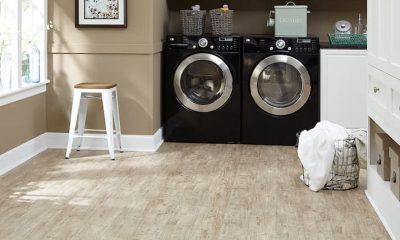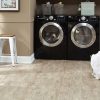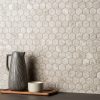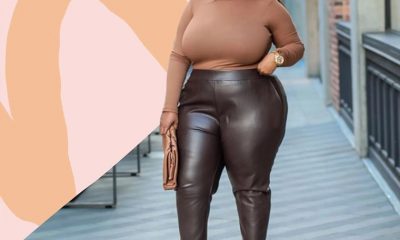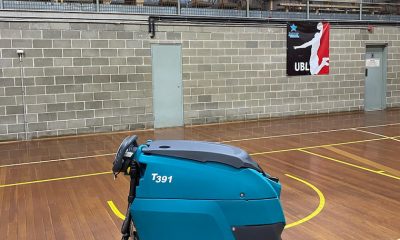Other
The Benefits of Choosing Higher-Thread-Count Sheets
For those who appreciate the finer things in life and will always opt-out for quality instead of quantity, 1000tc sheet sets will make sure you have the same feeling when you get into your bed for years to come.
What’s the first thing you notice when you walk into a bedroom? The bed, of course, and its voluptuous sheets, or lack thereof. In fact, not only can the right sheets be the centrepiece of your bedroom décor but also an addition to your healthy bedtime routine. Choosing one, however, often seems easier said than done.
What Is a Thread Count?
Thread count is the measure of how closely a piece of fabric is woven. It’s the sum of the number of warp threads per inch (or cm) and the number of weft threads per inch. Warp threads are the vertical or longitudinal threads held in stationary tension within a frame while weft threads are horizontally drawn through and inserted over and under the warp yarn. Recently, it’s been a topic of considerable interest, discussion and controversy among both consumers and manufacturers.
Small magnifiers, also called thread counters or portable folding magnifiers, are used in the textile industry to measure the number of threads per inch in a fabric. It’s about one inch on a side when opened and has a measured square opening in its base plate. To count the threads, usually with the help of a needle, one should place the opening on the fabric to be measured, looks through the magnifying lens on the top and count the number of threads within the square, in either direction.
Many consumers consider thread count to be a key measure of the quality or fineness of a fabric, especially bed sheets, thus, seeking fabrics that advertise high thread counts. Conversely, manufacturers have replied to this interest with even higher thread counts like 800 and the soft 1000tc sheet sets.
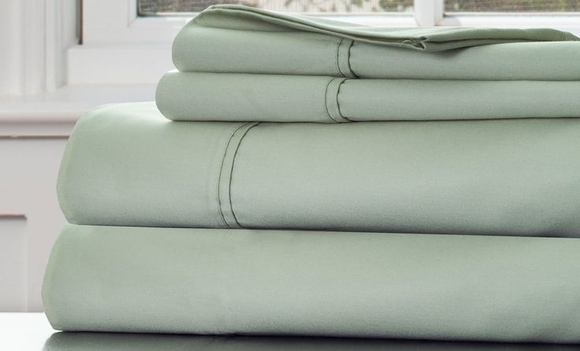
It’s time to get to the bottom of what that all means and how you can get the most of what your body and skin need through your choice of bedsheets.
What Is the Best Thread Count for Sheets?
To answer this question, you first need to think of your needs. Are you a cold or a warm sleeper? Do you live in a dry or damp climate? These factors influence the atmosphere of your bedroom and whether you choose 400, 600 or opt for 1000tc sheet sets.
Also, what type of person are you? Do you love to spice things up often and change your scenery so you enjoy creating different vibes in your bedroom or are you the type that loves to stick to the proven quality and finds comfort in keeping things just the way they are?
The air permeability and thermal properties of a fabric depend on the material it’s made of. To be exact, it depends on fibre fineness, shape, the value of the pores of the fabric and the yarn, weave and thickness, enclosed still air and bulk density.
In addition, the comfort properties like water absorbency, thermal resistance, water vapour transmission rate, radiant heat resistance and thermal protective resistance are higher in higher thread count yarn cotton fabrics than normal yarn fabrics due to high porosity.
Simply put, higher thread count bed sheets absorb more water, have less air permeability and transfer less heat. This would make them great for cold sleepers I.e., people who tend to feel chilly at night, enough to disturb their sleep.
Conversely, if you tend to get overheated easily and sweat meaning that you’re a hot sleeper or live in warmer areas, a lower thread count between 200-600 could be a better fit for you.
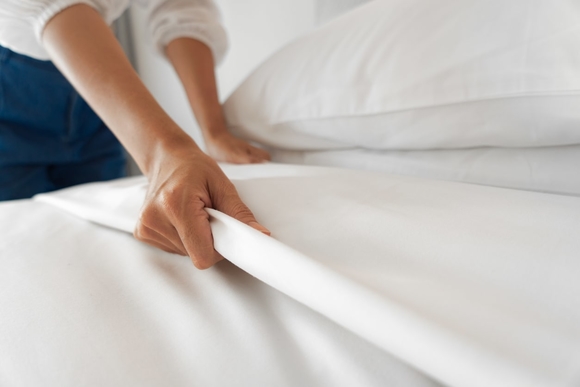
Also, higher thread count sheets are abrasion-resistant, making them more lasting than lower thread counts. The thread count range is usually between 200 to 1200 with a general agreement that anything between 200 and 800 is good enough for good quality bedding. However, those looking for superior quality should, naturally, aim higher.
In spite of the importance of a fabric’s thread count, it’s not the only factor that influences the quality of your bedding. The manner in which the yarn is spurned is also quite important.
Weaves such as sateen, are usually used for higher thread count sheets, resulting in more densely packed yarns that are softer but also heavier. Densely packed yarns result in less snagging. Higher-thread-count sateen weave sheets don’t only mean finer (thinner) yarns but also denser but smoother and more durable fabric.
For those who appreciate the finer things in life and will always opt-out for quality instead of quantity, 1000tc sheet sets will make sure you have the same feeling when you get into your bed for years to come.
What Material Should My Sheets Be?
Cotton is the most used fibre for bed sheets and a simple way to freshen up your bedroom. There are many different types of cotton fibres and blends used for bed sheets and it has kept its standard as the most wanted bedding material.
Cotton is a pure, natural material woven into the breathable fabric as an end result. There is a general agreement that moisture transmission through textiles has a great influence on the thermo-physiological comfort of the human body and that’s exactly what cotton is great at.
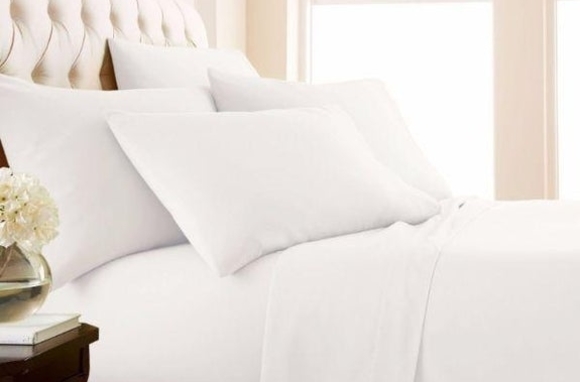
Depending on the differences in temperatures between your body and your surroundings. Cotton can either absorb and transfer or keep the heat, thus, keeping you cool in the summer or warm in the winter, respectively.
For all of those suffering from sensitive skin issues, cotton is a naturally hypoallergenic fabric and won’t cause any irritation or itching. In fact, cotton has been proven to improve the quality of sleep in people who suffer from allergies and eczema.
In addition to the comfort benefits, cotton is also durable and quite cheap. Naturally, organic, high thread count or sateen and satin weave fabrics are a bit more costly but high thread count cotton sheets are one thing that’s certain to bring you value for money.
Cotton is also an incredibly easy-maintenance fabric. Most cotton linens will to just fine be washed at a 40-degree machine cycle. Just make sure you wash them separately as a precaution and additional sanitary standard.
As a proud Pisces known for the selflessness, Olivia joined up the blog fascinated by the idea she can help readers with info on topics and their related benefits like health and beauty, travel, food and drinks. When not writing, she likes to call it a day reading comic books in the company of her Tonkinese cat Chatty or binge-watching The Big Bang Theory with her SO like the nerd she is.







